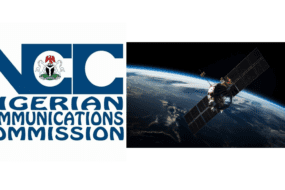Namibia’s Communication Regulatory Authority (CRAN) has ordered Starlink, the satellite internet service owned by Elon Musk’s SpaceX, to stop its operations in the country. This decision comes as Starlink continues to grapple with regulatory challenges in its global expansion, with Namibia’s authorities citing non-compliance with local licensing requirements.
A Standstill Over Licensing
CRAN has accused Starlink of providing its services in Namibia without securing the necessary approvals. Under Namibian law, all telecommunications providers must obtain a licence from CRAN before they can legally operate. Although Starlink has applied for this licence, the application remains under review and has yet to be approved.
In a firm statement, CRAN emphasised that the rules apply equally to all operators, whether local or international. “The regulatory framework ensures fair competition and equal opportunity for all providers,” CRAN stated, urging the public to refrain from purchasing Starlink services until the company complies with the legal requirements.
Starlink’s Expanding Footprint
Starlink has earned a reputation for transforming internet access in underserved regions, offering high-speed satellite connectivity to remote and rural areas. However, its rapid entry into new markets has often been met with regulatory scrutiny. Namibia’s decision to halt operations mirrors similar incidents across Africa.
In April 2024, Cameroon’s government banned Starlink equipment at its borders, citing the company’s failure to meet regulatory standards. The company has also faced regulatory roadblocks in Nigeria as it sought to increase subscription fees in response to soaring inflation rates.
Despite the recent suspension in Namibia, the Starlink website continues to list the country as a future service area, with operations projected to launch in 2025. However, the confiscation of terminals and equipment by police indicates that in order to achieve this goal, the company will have to overcome Namibia’s legal and regulatory landscape.
Finding A Balance Between Innovation and Compliance
The suspension of Starlink’s services raises broader questions about the balance between enabling technological innovation and maintaining fair competition in emerging markets. Starlink’s entry promises to improve connectivity for Namibia’s remote regions, where internet access is limited and unreliable. However, CRAN’s actions underscore the importance of adhering to local regulations, even for transformative technologies.
As Starlink continues its expansion across Africa, it faces the challenge of aligning its rapid deployment strategy with the regulatory realities of each country. Namibia’s stand is another reminder that while innovation can indeed drive progress, compliance with local laws remains essential to sustainable growth.







One reply on “Namibia Halts Starlink Operations Over Licensing Dispute”
[…] Namibia is exploring the potential launch of a central bank digital currency (CBDC) to enhance cross-border payments and financial inclusion. However, the Bank of Namibia (BoN) remains in the research phase, carefully evaluating whether a CBDC would effectively address the country’s financial challenges. This move follows a recent technical assistance mission from the International Monetary Fund (IMF). […]